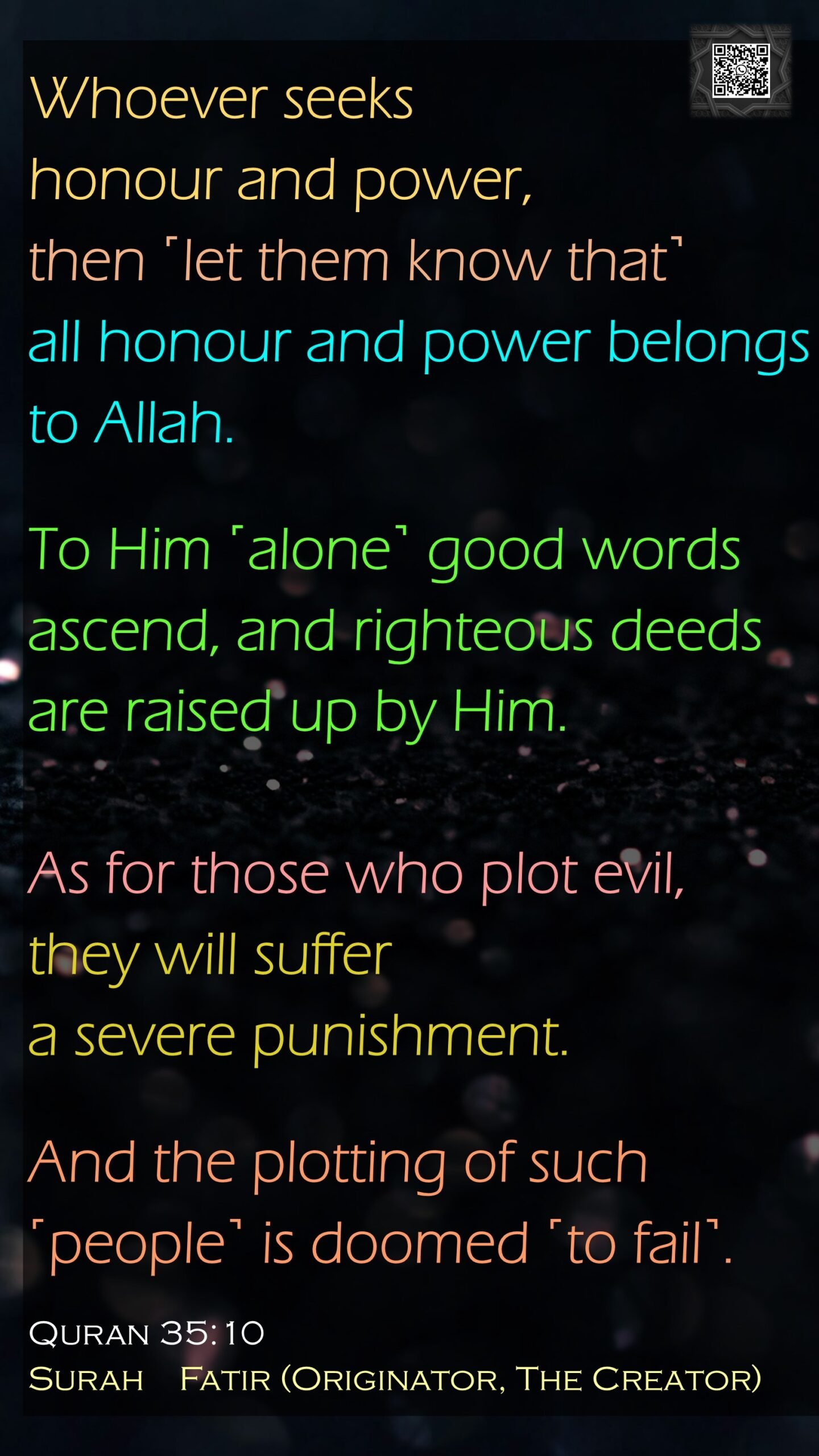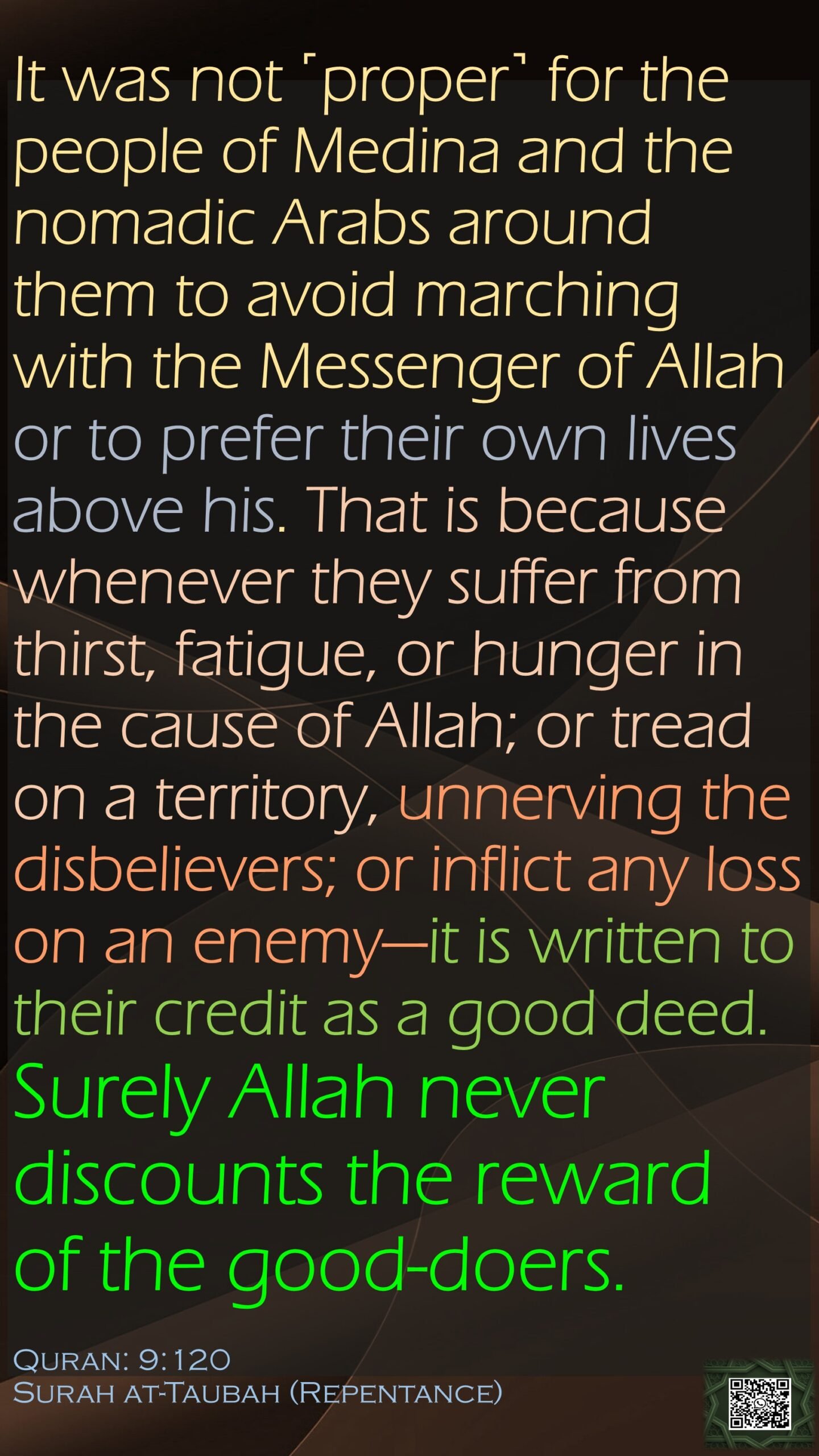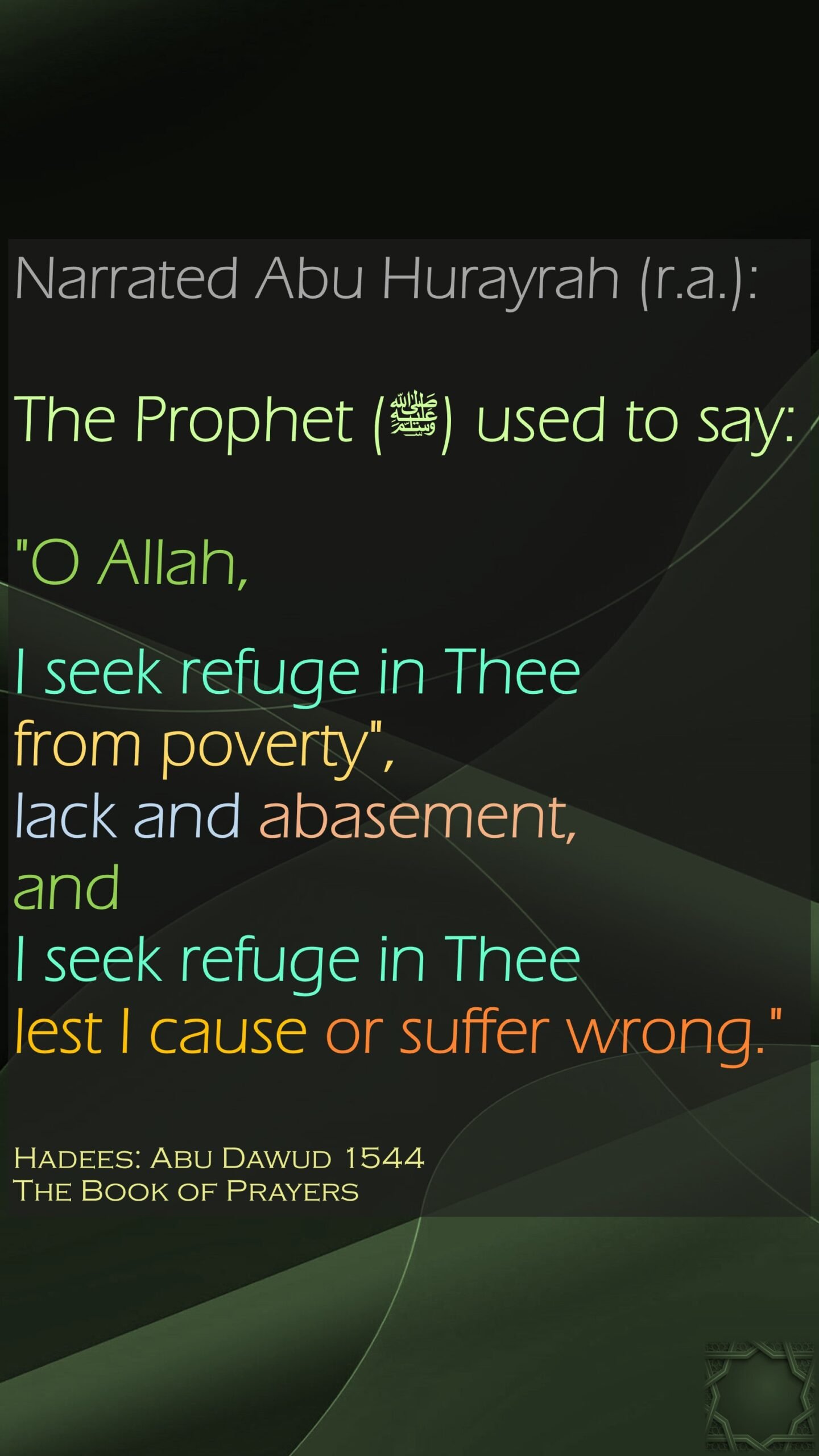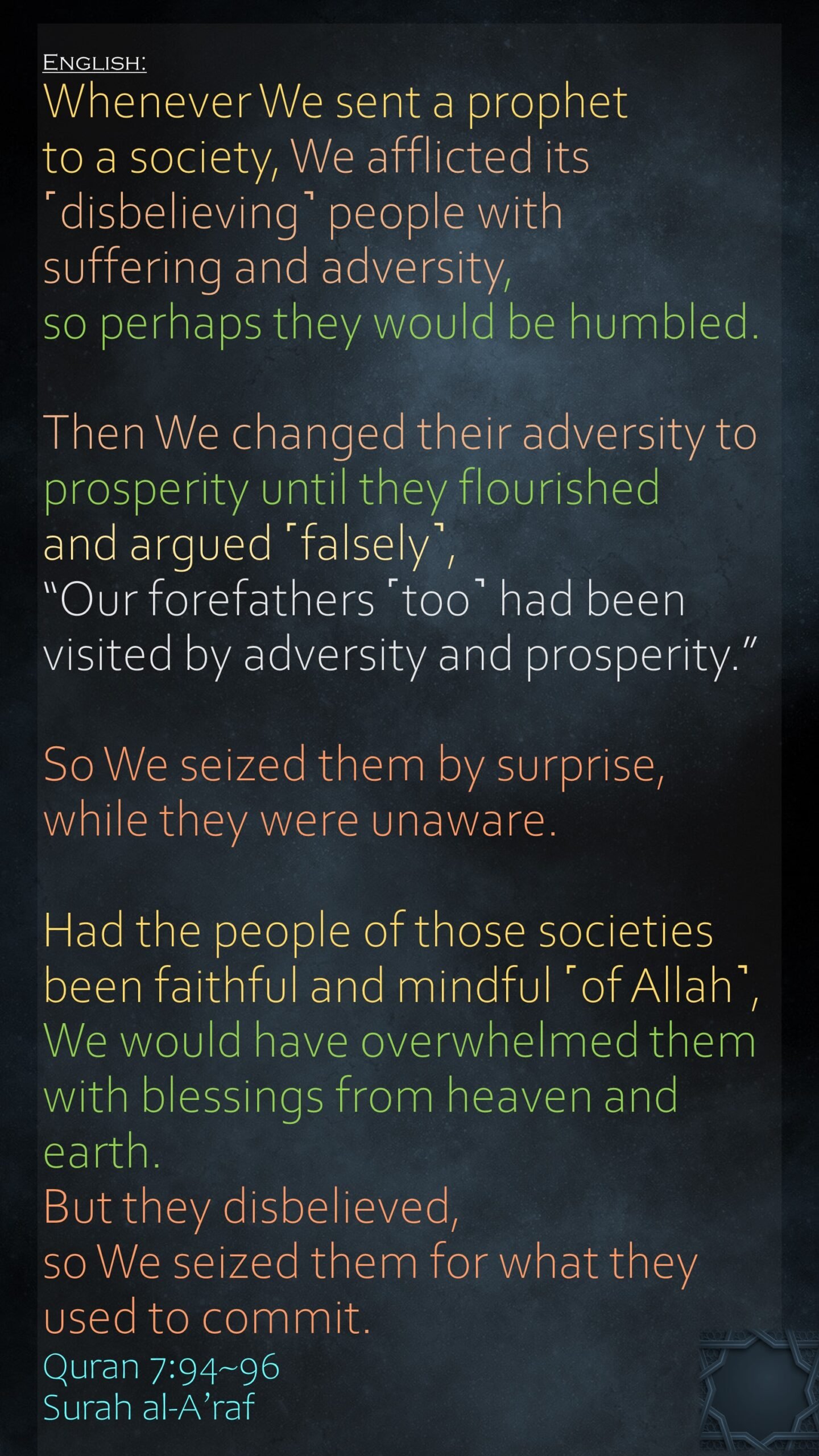19
Nov, 2025
25
Jun, 2025
Quran 9:120 (Ayah at-Taubah)
Islam, Quran 009, 120, Allah, arab, ayat, cause, daily, deed, disbeliever, enemy, fatigue, good, good doer, hunger, inflict, inspirations, islam, islamic, Life, lives, loss, march, Medina, messenger, Muhammad, nomadic, over, prefer, quran, repentence, reward, suffer, Surah, taubah, territory, thirst, tread, unnerve
16
Jan, 2025
Hadees: Abu-Dawud 1544
Hadees, Islam 1544, abasement, Abu-Dawud, Allah, Allah huma inni, book, cause, daily, hadees, hadith, inspirations, islam, islamic, lack, Muhammad, poverty, prayers, Prophet, prophetic, refuge, S.A.W.W., seek, suffer, supplication, thee, wrong, أظلم, أعوذ بك, الفقر, اللهم إني, وأعوذ بك, والذلة, والقلة
26
Oct, 2024
Quran 6:42~45
Islam, Quran 006, 032, 033, 034, 035, abundance, adversity, al-anam, appeal, ayat, daily, denial, deny, desire, despair, everything, grip, harden, hearts, humble, inspirations, islam, islamic, misdeeds, Muhammad, quran, Satan, seize, shower, suffer, Surah, uproot, wrongdoer
20
Jan, 2024
Quran 42:25~26
Islam, Quran accept, ash-Shura, ayat, consultation, counsel, daily, deeds, devere, disbelieve, good, Grace, increase, inspirations, islam, islamic, know, knowledge, Muhammad, news, pardon, Punishment, quran, repentence, respond, reward, sins, suffer, Surah
29
Apr, 2022









